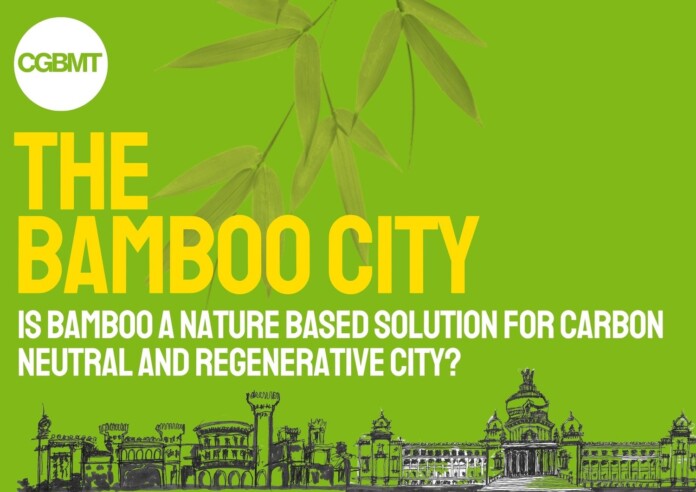The Centre for Green Building and Material Technology (CGBMT) has proposed bambooing of Bengaluru to mitigate its current and future environmental challenges. Called the Bamboo City Project, the Bengaluru-based private advocacy has reached out to the government agencies that run the city to adopt its plan.
The project, designed as a ‘nature-based solution for carbon neutral and regenerative city’ promises to achieve carbon neutrality of the city by 2030 by substantially reducing greenhouse gasses. The larger mission of the project is to achieve sustainable development in and around the IT capital of India and improve supply of bamboo for housing.
CGBMT, set up in 2004, has been a pioneer in proposing sustainable materials for the construction industry. It has a strong research focus to its advocacy. The Bamboo City project is the brainchild of Neelam Manjunath, founder of CGBMT. She is part of the C40 Cities Women4Climate initiative.
The good news is, the Bamboo City Project was prepared with prominent private players, important government officials and retired officers of the Indian Forest Service. It has also roped in Susanne Lucas, the executive director of the World Bamboo Organization.
Other than greening Bengaluru, protecting its lakes, and improving the city’s water table, the project’s key marketing pitch is how one bamboo can provide enough oxygen for one citizen per year. An individual needs 0.80 plus kg of oxygen a day and a fully grown bamboo releases 3 kgs of oxygen a year. And a bamboo plant is said to produce 30 percent more oxygen than other trees. So, everything seems to be in favour of the bamboo.
Advantage of Bamboo
- Bamboo takes only 3 years to grow full size
- It needs less water after initial phase
- It is a perennial flowering plant, regenerates itself, so it does not need replanting after harvesting
- Absorbs 5 percent more CO2 a year and gives out 30 percent more oxygen
Sustainable building Material
The Construction sector contributes to more than a third of carbon emissions. At COP27, Bamboo was declared as one of the top five solutions to mitigate global warming, by replacing traditional housing materials such as carbon and steel with bamboo, helps reduce carbon emissions caused by the global housing sector.
India today faces a huge demand-supply gap for bamboos. Projects like these can contribute to the better supply and employment opportunities.










